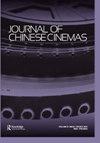Comedy mutations: a dialogue
IF 0.4
3区 艺术学
0 FILM, RADIO, TELEVISION
引用次数: 0
Abstract
Xinyu Dong (XD): Jonathan, you and I are both cinephiles. Much of our conversation over the years has been about our favorite films and directors, and we nudge each other to watch or re-watch new releases and rediscovered classics. Now that we’re co-editing this special issue on comedy, I wonder, what are some of the most amusing moments for you in the Chinese-language films that you’ve seen? I ask about these cinephiliac moments because when a comic scene works, it tends to be highly memorable. And often what we find amusing can tell us a lot about the film as a whole: how it plays with comic conventions, how it addresses its audience, how it ages over time. Jonathan Rosenbaum (JR): I was especially amused by the point-of-view shots from inside an ATM in Peter Chan’s 1996 Comrades: Almost a Love Story (a particular favorite of mine), because of the whole idea of what we look like from the vantage point of our money – or, more specifically, what Maggie Cheung and Leon Lai, both mainlanders who meet one another in Hong Kong and try to ‘make it’ there, look like to the ups and downs of their cash balances that epitomize much of their struggle. XD: Interesting that you picked this sweet little running gag in an unassuming romantic comedy. I say ‘unassuming’ because not only rom-com is always knowingly light, but this film makes unpretentiousness its virtue. Comrade, this is almost a love story, but wait a minute, let me check my ATM... ATM is the tragicomedy here. No wonder the film has aged so well. It’s a classic now. I also recall a favorite moment in there, when Leon Lai restlessly switches between several long lines at the local McDonald’s and promptly deposits himself at the counter when Maggie Cheung starts a new line. A well-choreographed ‘meet-cute’. But it also reminds me of Charlie Chaplin’s Tramp at the employment office in A Dog’s Life (1918) – whereas the Tramp always loses to his more alert (or muscular) fellow tramps, Leon Lai has better luck as a mainlander in Hong Kong, better trained to be opportunistic with long lines. Of course, Peter Chan didn’t have to see Chaplin to come up with this gag, even though he might have while studying at the UCLA film school. He has an eye for comic situations found on the street, and the gag works because it taps into our everyday experience. Like your ATM example, this one keeps me amused when I wait in long lines... With all these gags found on the street, so to speak, Chan keeps the first part of Comrade lighthearted and funny, a ‘migrant comedy’ in the tradition of the ‘rube comedies’ in early cinema.喜剧突变:一段对话
董心雨(小丹):乔纳森,你和我都是电影迷。多年来,我们的大部分谈话都是关于我们最喜欢的电影和导演,我们鼓励对方看或重看新片,重新发现经典。现在我们正在共同编辑这期关于喜剧的特刊,我想知道,你看过的华语电影中最有趣的时刻是什么?我问这些电影迷的时刻,因为当一个喜剧场景奏效时,它往往是非常令人难忘的。通常,我们觉得有趣的地方可以告诉我们很多关于整部电影的信息:它是如何与喜剧惯例打交道的,它是如何应对观众的,它是如何随着时间的推移而变老的。乔纳森·罗森鲍姆(小):我特别开心的角度镜头从ATM机中在陈可辛的1996同志:甜蜜蜜(我的一个特别喜欢的),因为我们的想法看起来像从我们的钱的优势——或者,更具体地说,玛吉张和黎明,大陆人在香港相遇和试图使它的,看起来像起伏的现金余额,概括他们的斗争。小丹:有趣的是,你在一部朴实无华的浪漫喜剧中选择了这个可爱的小段子。我说“不做作”,不仅因为浪漫喜剧总是故意轻描淡写,而且这部电影把不做作作为它的优点。同志,这几乎是一个爱情故事,但是等一下,让我检查一下我的自动取款机…ATM是这里的悲喜剧。难怪这部电影历久不衰。这是现在的经典。我还记得在那里最喜欢的一个时刻,黎昂(Leon Lai)在当地麦当劳(McDonald’s)的几条长队中不停地切换,当麦琪(Maggie张)开始排队时,他迅速坐在柜台前。精心设计的“遇见可爱”。但这也让我想起了查理·卓别林(Charlie Chaplin)在《狗的生活》(1918)中饰演的职业办公室里的流浪汉——流浪汉总是输给他那些更机警(或肌肉发达)的流浪汉同伴,而作为香港的内地人,里昂·赖(Leon Lai)运气更好,因为他受过更好的训练,能在长队中伺机而动。当然,陈可辛不一定要去见卓别林才能想出这个笑话,尽管他在加州大学洛杉矶分校电影学院学习时可能见过卓别林。他对街头的喜剧场面有独到的眼光,他的恶作剧之所以奏效,是因为它触及了我们的日常经验。就像你举的自动取款机的例子一样,当我在排长队的时候,这个让我觉得很有趣……可以这么说,在街上发现的这些插科打诨,成龙让《同志》的第一部分轻松有趣,是一部早期电影中“土豪喜剧”传统的“移民喜剧”。
本文章由计算机程序翻译,如有差异,请以英文原文为准。
求助全文
约1分钟内获得全文
求助全文

 求助内容:
求助内容: 应助结果提醒方式:
应助结果提醒方式:


